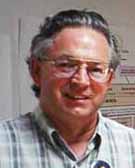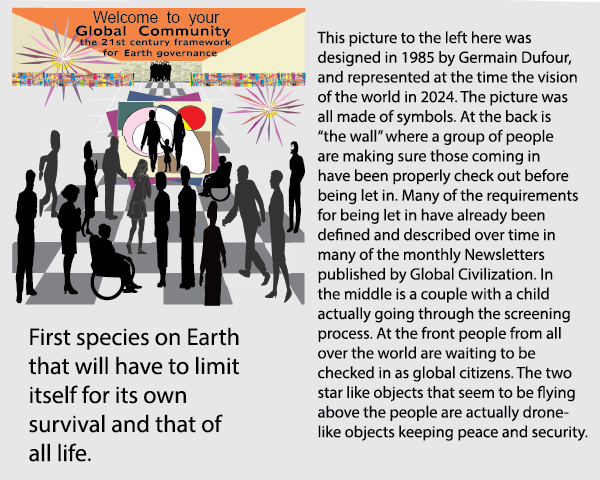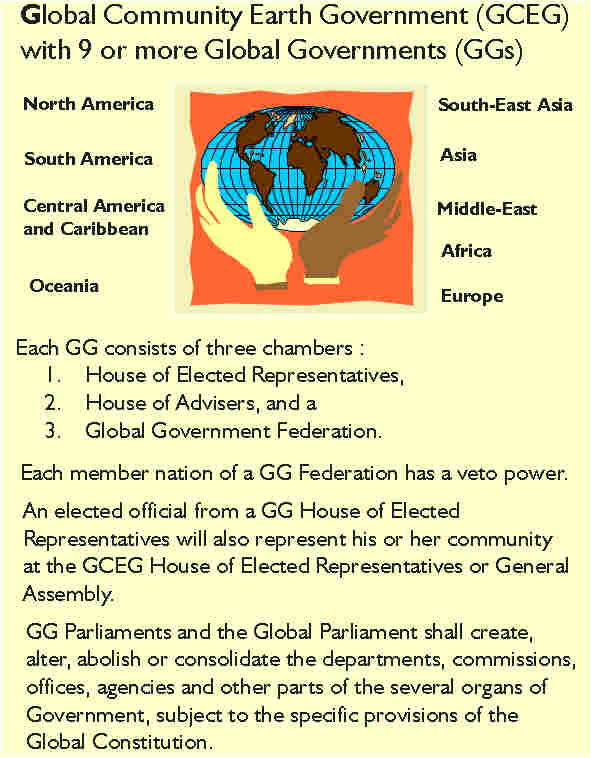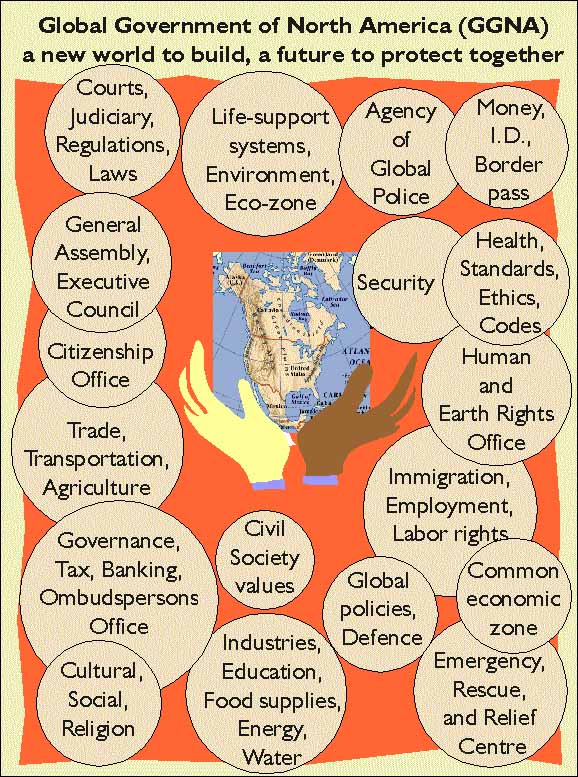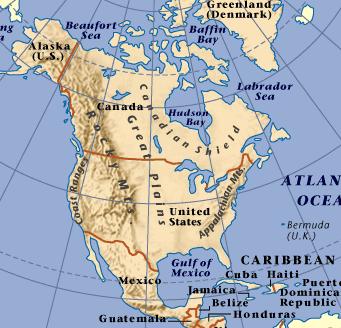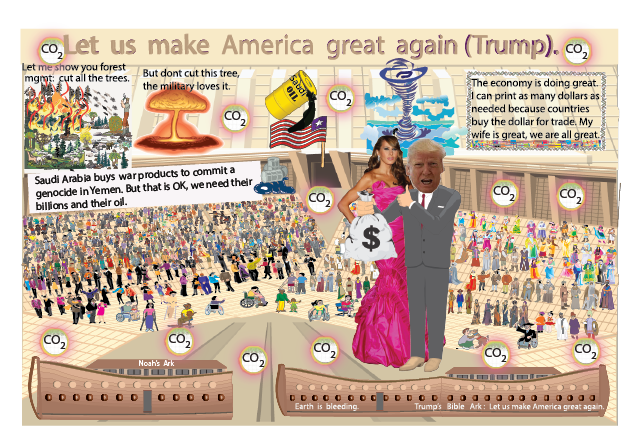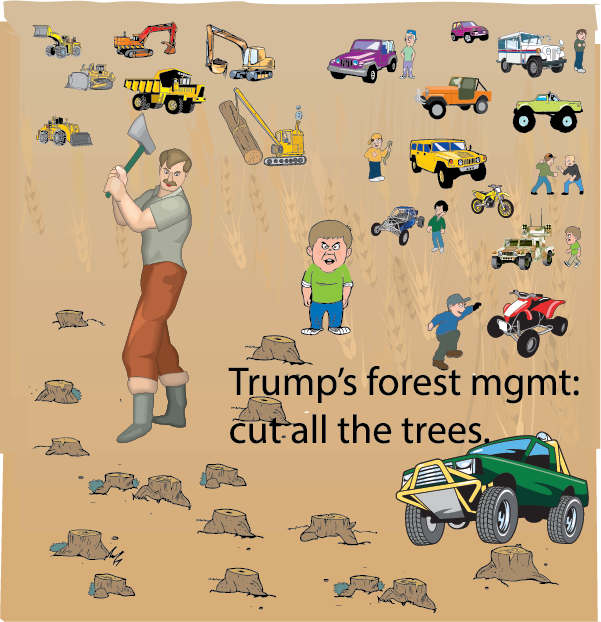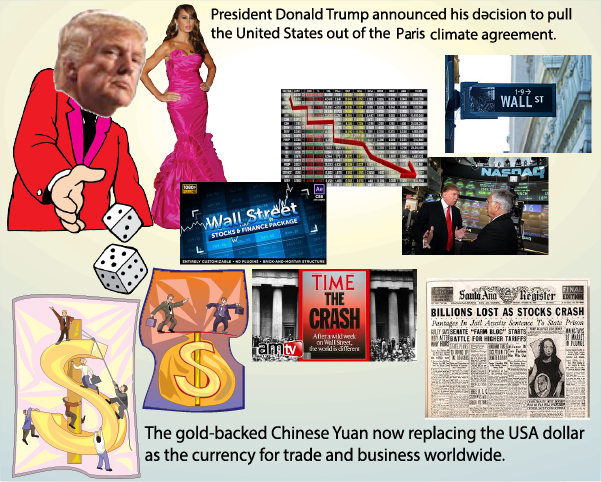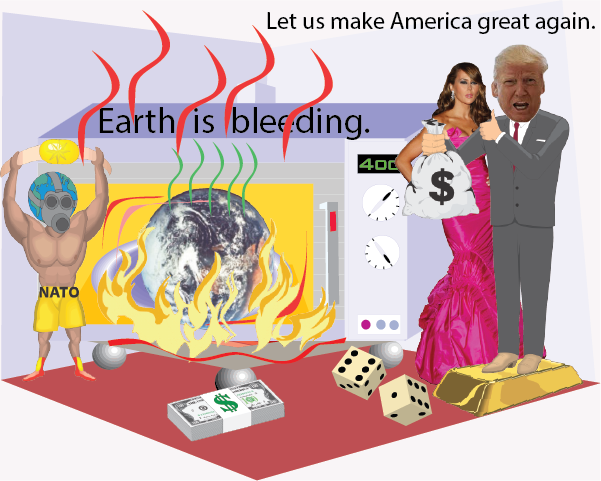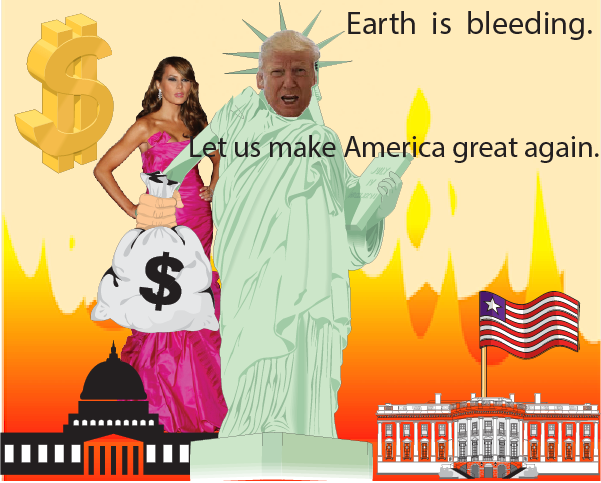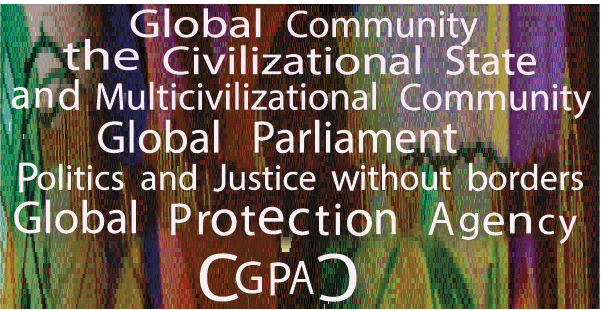
Global Protection Agency(GPA) will train and lead a global force.
Global Law and Justice, Global Constitution, Statutes, and Codes
| Scale of Global Rights Code | Global Community Vision Code | Global Dialogue Code |
| Federation of Global Governments Code | Global Peace Movement Code | Global Parliament Code |
| Law and Justice Code | Earth Court of Justice Code | Global Protection Agency Code |
| Global Parliament Proceedings Code | Global Life Support Protection | Protection of the global life-support systems Code |
| The air we breathe Code | The water we drink Code | The soils that provide the food we eat Code |
| The climate that serendipitously is neither too hot nor too cold Code | Communications and media Code | Electricity and energy Code |
| Food production and delivery Code | Recreation Code | Temperature control Code |
| Transportation Code | Water supply Code | Community infrastructures Code |
| Global warming crisis Code | Global Dialogue participants Code | Global warming Code |
| Global Parliament Constitution Code | Global climate change Code | Global Voting Code |
| Global Political Parties Code | Countries to uphold the principles of equality Code | Global Civilization Initiatives Code |
| Global cultural exchanges Code | Responsibility of Political Parties Code | Countries need to uphold the principles of equality Code |
| Global principles of mutual learning between countries Code | Global general meeting of a political party Code | Global caucus of all members of any particular party in Parliament Code |
| Direct Democracy. Code | Earth resources. Code | Global Parliament management. Code |
| Home and community development. Code | Global Diplomacy. Code | World population issues. Code |
| Replacing the United Nations and NATO by Global Parliament's governance. Code | Replacing the Universal Declaration of Human Rights by the Scale of Global Rights. Code | Human rights are universal and inalienable; indivisible; interdependent and interrelated. They are universal because everyone is born with and possesses the same rights, regardless of where they live, their gender or race, or their religious, cultural or ethnic background. Code |
| Human rights include the right to life and liberty, freedom from slavery and torture, freedom of opinion and expression, the right to work and education, and many more. Everyone is entitled to these rights, without discrimination. Code | The most important human rights: - the right to life - those rights that make life worth living, such as the rights to food, education, work, health, and liberty. Code | Everyone is entitled to all the rights and freedoms set forth in this Declaration, without distinction of any kind, such as race, colour, sex, language, religion, political or other opinion, national or social origin, property, birth or other status. Furthermore, no distinction shall be made on the basis of the political, jurisdictional or international status of the country or territory to which a person belongs, whether it be independent, trust, non-self-governing or under any other limitation of sovereignty. Code |
| Fundamental rights are the rights of a country's citizens that are stated in the constitution and enforced by the law. Human rights, on the other hand, are the safeguards that a human being seeks in order to live in dignity and equality. Code | Civil and political rights are violated through genocide, torture, and arbitrary arrest. These violations often happen during times of war, and when a human rights violation intersects with the breaking of laws about armed conflict, it's known as a war crime. Code | Human rights violators are involved for genocide, torture, war crimes, recruitment or use of child soldiers, female genital mutilation, and for immigration and naturalization fraud arising out of efforts to hide their involvement in such crimes. Code |
| Global Ministries. Code | New ways of doing business and trade in global development and in the management of global resources. Code | |
| Closed meetings of Global Political Parties to select candidates or to decide on policy or to elect a presidential caucus. Code | A one-party state with a governance structure in which only a single political party controls the ruling system. Code | Global Parliament summit meeting Code |
| A Global Transnational Political Party with members or representatives in more than one country. Code | A Global small government conservatism. Code | A Global voting method in which a voter's identity in an election or a referendum is anonymous. This forestalls attempts to influence the voter by intimidation, blackmailing, and potential vote buying. Code |
| Global Parliament allowing both freedom and transparency, two fundamental values of a democratic society. Code | A Global Summit Meeting, an international meeting of heads of state or government. Code | Management Meetings, Leadership Meetings, Executive Meetings, or Board Meetings to deliver updates. Code |
| Fundamental Liberal ideals of freedom of speech, freedom of the press, freedom of religion, the separation of church and state, the right to due process, and equality under the law are widely accepted as a common foundation of liberalism. Code | The Republicans advocate reduced taxes as a means of stimulating the economy and advancing individual economic freedom. They oppose extensive government regulation of the economy, government-funded social programs, affirmative action, and policies aimed at strengthening the rights of workers. Code | Republican philosophy leans more towards individual freedoms, rights and responsibilities. In contrast, Democrats attach greater importance to equality and social/community responsibility. Code |
| Unanimity being an agreement by all people in a given situation. Groups may consider unanimous decisions as a sign of social, political or procedural agreement, solidarity, and unity. Code | Global Parliament Participants listing. Code | Global Parliament 's Constitution. Code |
| Global environmental and ecological protection. Code | Building a Civilizational State. Code | Global education. Code |
| Global leadership. Code | Short and long term solutions to global issues. Code | |
| Business and Professions Code | Civil Code | Eradicating poverty Code |
| Racism, Xenophobia and Discrimination Code | Collecting the Global Tax Code | Clean Air Code |
| Code of Civil Procedure | Commercial Code | Corporations Code |
| Ecology of the Planet Code | Education Code | Elections Code |
| Evidence Code | Home and Community Development Code | Climate Change Adaptation Code |
| Family Code | Financial Code | Settling of Disputes Between Nations Code |
| Human and Earth Rights Code | Food and Agricultural Code | Fish and Game Code |
| Youth Participation Code | Harbors and Navigation Code | Government Code |
| Health and Safety Code | Insurance Code | Women Rights and Issues Code |
| Waste Management Code | Military and Veterans Code | Labor Code |
| Penal Code | Probate Code | Teaching and Education Code |
| Global Economy and Trade Code | Public Resources Code | Public Contract Code |
| Public Utilities Code | Revenue and Taxation Code | Cities: Power, Rights, Responsiblities and Accountabilities Code |
| Streets and Highways Code | Unemployment Insurance Code | Global Life-support Systems Protection Code |
| Vehicle Code | Water Code | Alternative Energies Code |
| Welfare and Institutions Code | Ecological Resources Code | Recycling and Biodegradability Code |
| Abolition of Weapons of Mass Destruction Code | Global Community Citizenship Code | Statement of Rights and Responsibilities Code |
| Corporate Accountability and Global Ethics Code | Universal Health Care Code | Sciences and Technology Code |
| Preventive Actions Against Polluters Code | Water Resources Code | Earth Security Code |
| Management of Earth Resources Code | New Way of Doing Business Code | Global Rescues and Emergencies Code |
| Working Conditions Code | Global Transparency Code | Money Trading and Stocks Code |
| Space Exploration Code | Research and Development Code | Global Food Supplies Code |
| Asylum, Immigration and Border control Code | Global Community Arrest Warrant Code | Global Fight Against Crime Code |
by
My name is
Germain Joseph Dufour.
I am
President of Global Parliament
Global Civilizational Community
Multicivilizational Community
Global Community
and also President
of my own Canadian business and website:
Global Community WebNet Ltd.
globalcommunitywebnet.com
Take time to listen to our videos.
Many of the Videos might be too large to open for you on the Internet. Sorry!
And welcome to all of you global citizens.
Global Community, Global Parliament, Federation of Global Governments,
Global Civilizational State
![]()
![]() .
.
Return to Global Dialogue 2024
Return to Global Community activities.
Federation of Global Governments
Global Community WebNet Ltd. (Canada)
Email address:
Global Community, Global Community WebNet Ltd. (Canada)
|
| |
||
|
|  |
||
| The following table shows a summary of the Proceedings of the Global Dialogue as evaluated by the Global Community Assessment Centre (GCAC) | |
There was a need at the time for helping humanity back onto the path of survival this millennium. Tody there is an urgent need for such help and most likely will continue to be so forever. Global dialogues are the source of new ideas and finding new ways for our survival and taking along with us other lifeforms on the planet.
The people of the Earth Community, Global Community, are using global dialogues to resolve conflicts, promote democracy, and fight hunger, terrorism, disease, and human and Earth rights abuses. In order to bring about the event of peace, Global Community is offering other good organizations around the world to work together to bring warring parties to peace. We can accomplish this task by concrete actions such as:
a) Tracking armed conflicts within and between nations around the world and offering assistance in dispute resolution;
b) Promoting human and Earth rights and democracy for the people;
c) Monitoring democratic elections; and
d) Educating the public about the advantages of a peaceful solution to any conflict.
Global Community also proposes that all nations of the world promote the Scale of Global Rights and the criteria to obtain Global Community Citizenship. Every global community citizen lives a life with the higher values described in the Scale and the criteria. Global community citizens are good members of the human family. Most global problems, including global warming and world overpopulation, can be managed through acceptance of the Scale and the criteria.
The Global Community can contribute in evaluating options and strategies for adapting to climate change as it occurs, and in identifying human activities that are even now maladapted to climate. There are two fundamental types of response to the risks of climate change:
1. reducing the rate and magnitudes of change through mitigating the causes, and
2. reducing the harmful consequences through anticipatory adaptation.
Mitigating the causes of global warming implies limiting the rates and magnitudes of increase in atmospheric concentrations of greenhouse gases, either by reducing emissions or by increasing sinks for atmospheric CO2. Reducing the harmful consequences can be achieved by co-operating together with the global ministries on climate change and emergencies. The Global Community has created the global ministries to help humanity be prepared to fight the harmful consequences of a global warming through anticipatory adaptation. The global ministries on climate change and emergencies are now operating. The ministries have developed:
1. policy response to the consequences of the global warming, and
2. strategies to adapt to the consequences of the unavoidable climate change.
The Earth Community Organization (ECO), the Global Community, has given back responsibility to every citizen on Earth. Everyone shares responsibility for the present and future well-being of life within the Global Community. We will work together in working out sound solutions to local and global problems. It would be wrong and dishonest to blame it all on the leader of a country. Most problems in the world must find solutions at the local and global community levels (and not assume that the leader alone is responsible and will handle it). There is a wisdom in the ways of very humble people that needs to be utilized. Every humble person deserves to have ideas respected, and encouraged to develop his or her own life for the better. Sound solutions to help manage and sustain Earth will very likely be found this way. Everyone can help assess the needs of the planet and propose sound solutions for its proper management, present and future. Everyone can think of better ideas to sustain all life on Earth and realize these ideas by conducting positive and constructive actions. When there is a need to find a solution to a problem or a concern, a sound solution would be to choose a measure or conduct an action, if possible, which causes reversible damage as opposed to a measure or an action causing an irreversible loss; that is the grassroots process. The Global Community can help people realized their actions by coordinating efforts efficiently together.
The responsibility of a peacemaker is to settle differences through compromise and negotiation before they erupt into violence. Conflicting views do not have to bring about fighting. War is an irreversible solution to a problem. War is never an appropriate solution to resolve a conflict.
The Global Community is promoting the settling of disputes between nations through the process of the Earth Court of Justice.
![]()
Report: Evaluation of Global Community Data |
The evaluation of GESDI and GSDP
![]()
![]()
![]()
![]() was conducted for the following world regions:
was conducted for the following world regions:
North America,
Central America and the Caribbean,
South America,
Africa,
Europe,
Asia,
South-East Asia,
Middle-East, and
Oceania.
The 9 world regions correspond to the 9 global governments proposed by Earth Government in the Global Constitution.
![]()
![]()
![]()
This report will be made available at a later day.

![]()
Global Data |
Global data used for the evaluation of the Global Community data will be made available at a later day along with the report.
Developing a scale of values and designing and testing quality indicators is the most important task. The Gross Environmental Sustainable Development Index (GESDI)
Table of Contents
Theme of Global Dialogue 2024
Short and long term solutions to save the world.
Global participants files.
by
My name is
Global Community, Global Parliament, Federation of Global Governments,
Global Civilizational State
Return to Global Dialogue 2024
Return to Global Community activities.
Federation of Global Governments Global Community WebNet Ltd. (Canada) Email address: germaindufour4@gmail.com, Global Community WebNet Ltd. (Canada)
Note: show a short description of the work done by Global Community over the past 39 years. A listing of all the work done from year 1985 to 2024 follows below here after the title "Table of Contents". And a more complete listing of all our work done ever since 1985 starts with the title:
Global participants files.
Table of Contents
Sorry not all links were properly finished. Not enough time! But you can finish or access each and everyone of them. Here is how I have done it. First connect with
"index.html" major section. Then add to it
The Table of Contents of the work done by Global Community since 1985, including our Vision of Earth in 2024.
As never before in history, common destiny beckons us to seek a new beginning. It requires a new sense of global interdependence and universal responsibility. We must develop and apply the vision of a sustainable way of life locally, nationally, regionally, globally, and within ourselves throughout life. Our global cultural diversity is a precious heritage and different cultures will find their own distinctive ways to realize the global vision.
In order to build a sustainable global community, each individual, each local community, and national governments of the world must initiate their commitment to Global Civilizational Community, which we have defined as a social, and political movement in the sense of having a broad organizational structure and an ideology aimed at governing. The environmental movement, within Global Civilizational Community, expresses the concerns of groups of people regarding depletion of water, clean air, climate change aspects, degradation of land and other changes in ecosystems affecting traditional patterns of natural resources exploitation. Global Civilizational State has taken the role of helping these groups in protecting and managing our mutual global vision by coordinating efforts.
Global Civilizational State has now a Vision of the Earth in Year 2024 and a sense of direction. Global Civilizational Community has embarks on a new path in history, the inevitability of global societies living, sharing, and creating symbiotical relationships interactively. Global Civilizational State is a governing body based on universal values, global rights, global concepts and direct democracy which defines us all. Yes! Now we all can vote on creating our global vision together. We might as well start working on this new way of doing things, and creating governing institutions now; there is no longer any reason to wait. Global Civilizational State conducts affairs in ways to promote political, economic, cultural and scientific relations, while maintaining peaceful relationships.
Our creativity today already influences tomorrow's socio-economic strategies and contribute to the evolution of human societies - an evolution directed towards a global partnership and cooperation with each other for survival. Global Civilizational State was first to oppose any type of invasion of a people by another people. Global Civilizational State opposes environmental, economic, population and military warfares.
For example, to explain further as Moscow's war in Ukraine rages on, with deadly shelling on cities along the front lines and more clashes in hot spots in southern Ukraine, sadly, regrettably, and disastrously, the Ukrainian president, Volodymyr Zelenskiy, showed no need to use diplomacy to save his country from being detroyed and his citizens from being killed.
Before the war, President Vladimir Putin demanded NATO and the USA to turn the clock back to 1997 and remove its forces and military infrastructure from Central Europe, Eastern Europe and the Baltics. In his eyes, the West promised back in 1990 that NATO would expand "not an inch to the east", yet did so anyway.
NATO and the USA, along with the EU, are helping as if wars were the only way to solve problems in the Ukraine. This is the same kind of wrong behaviour these people and states from the EU have been using between themselves over the past centuries. They behave as if war was the answer to all their problems or concerns. Diplomacy never not to be used.
Sir Winston Leonard Spencer Churchill, was a British statesman, soldier, and writer, who served as Prime Minister of the United Kingdom twice, from 1940 to 1945 during the Second World War, and again from 1951 to 1955. The First World War (WWI) was fought from 1914 to 1918 and the Second World War (or WWII) was fought from 1939 to 1945. They were the largest military conflicts in human history. At the outbreak of war in 1914, Churchill was serving as First Lord of the Admiralty.
In 1915 he helped orchestrate the disastrous Dardanelles naval campaign and was also involved in the planning of the military landings on Gallipoli, both of which saw large losses of his armies. As prime minister (1940–45) during most of World War II, Winston Churchill shaped Allied strategy in the war. In both world wars Winston Churchill would have been able to use diplomacy to end the wars. But diplomacy was not his way to deal with problems, and neither the West's way, to fight Adolf Hitler Army.
We have the responsibility of managing Earth.
http://globalcommunitywebnet.com/Dialogue2024/
index.html#LifeExtinction
Life extinction crisis was caused by a global and local economic system based on capitalism, namely Transnational Corporations CEOs at home and overseas whom all should be brought to Justice.
The extinction crisis was caused by an economic system based on capitalism which promotes accumulation by dispossession, and ceaseless growth designed and calculated to encourage a higher yearly GDP that is destroying ecosystems the world over. The global socioeconomic system of capitalism is thus forcing us to work harder to surpass previous GDP consumption and population numbers until we have devoured everything that maintains life, ending up with a polluted, lifeless, and scorched planet. This system made it possible for 1% of people in the world, namely Transnational Corporations CEOs, and mostly global corporate America, to have as much wealth as half the world's population, with always the overriding goal for which maximal profits, and not the needs and welfare of future generations. Capitalism has institutionalized a global ignorance, in which producers and consumers cannot know or care about one another, so that the pollution and human exploitation caused in the production and transportation of goods in the world has remained invisible and opaque to consumers. The combined effects of aggressive marketing, advertising, and planned product obsolescence has meant that the consumer’s oversized footprint is largely a consequence of the global power of this 1% so, in that sense, it is perhaps more accurate to speak of corporate global ecological footprints rather than the footprints of nations or individuals. In a nutshell, capitalism is responsible for the extinction crisis and, therefore, its defenders and endorsers, mainly the CEOs of corporate America at home and overseas, including their Chief Operating Officers, Board of directors, and Chief Financial Officers, should be brought to justice.
Contact Information
![]()
Gross Sustainable Development Product (GSDP)
An other indicator was developed to measure the costs of development: the Gross Sustainable Development Product (GSDP).
![]()
![]()
![]()
![]()
The GSDP is defined as the total value of production within a region over a specified period of time. It is measured using market prices for goods and services transactions in the economy. The GSDP is designed to replace the Gross Development Product (GDP) as the primary indicator of the economic performance of a nation.
The GSDP takes into accounts:
· the economic impacts of environmental and health degradation or improvement, resource depletion or findings of new stocks, and depreciation or appreciation of stocks;
· the impact of people activity on the environment, the availability of resources, and economic development;
· the "quality" of the four major quality systems and the impacts of changes in these systems on national income and wealth;
· global concerns and their impacts on the economy;
· the welfare, economic development and quality of life of future generations;
· expenditures on pollution abatement and clean-ups, people health, floods, vehicle accidents, and on any negative impact costs;
· the status of each resource and the stocks and productive capacities of exploited populations and ecosystems, and make sure that those capacities are sustained and replenished after use; and
· the depreciation or appreciation of natural assets, the depletion and degradation of natural resources and the environment, ecological processes and biological diversity, the costs of rectifying unmitigated environmental damage, the values of natural resources, capital stocks, the
impacts of degradation or improvement, social costs, health costs, environmental clean-up costs, and the costs of the environment, economic growth, and resources uses to current and future generations and to a nation’s income.
The measurement of GSDP shows that consumption levels can be maintained without depleting and depreciating the quality and quantity of services. It indicates the solutions to the problems as well as the directions to take, such as:
· increase productivity;
· modify social, educational programs and services;
· slow down or increase economic growth;
· remediate components of the four major quality systems; and
· rectify present shortcomings of income and wealth accounts.
The measurement of GSDP also gives a proper and sound signal to the public, government and industry about the rate and direction of economic growth; it identifies environmental, health, and social quality; it identifies sustainable and unsustainable levels of resource and environmental uses; it measures the success or failure of sustainable development policies and practices; and it identifies resource scarcity. Values obtained enable us to make meaningful comparisons of
sustainable development between cities, provinces, nations over the entire planet.
A status report of all physical accounts show the physical state and availability of resources and the state of the environment. Examples of the physical stock accounts are:
• wildlife • agricultural • soils • fish
• protected wilderness areas • flow rate of water
Valuation in terms of money accounts is difficult for some non-market values such as:
* soil carrying capacity and productivity * acid rain deposition
* biodiversity * wilderness and protected areas * land productivity
GESDI can be obtained for these quality indicators that are difficult to give a money value to. Both the GESDI and GSDP are measured together and tell us about the quality and cost of development, locally and globally.
Measurements of GESDI and GSDP provide insights for the discussion of issues such as :
· Are People aspects being stressed too far?
· Are resources and the environment managed in a sustainable manner?
· What forms of community and home designs promote sustainability?
· In what ways should social, educational, and health programs and services be modified?
· Is this generation leaving to the future generation a world that is at least as diverse and productive as the one it inherited?
· What improvements can be brought up to the quality of development?
![]()
![]()
![]()
![]()
![]() is quantitatively describing quality indicators rather than merely measuring different variables. GESDI includes all possible aspects, all physical, biological, health, social and cultural components which routinely influences the lives of individuals and communities.
is quantitatively describing quality indicators rather than merely measuring different variables. GESDI includes all possible aspects, all physical, biological, health, social and cultural components which routinely influences the lives of individuals and communities.
If we are to achieve effective evaluation of quality, comprehensive data are needed about the status and changes of the variables. Optimally, these data may be organized in terms of indices that in some fashion aggregate relevant data. These indices are in turn used to predict the impact of public and private actions, assess conditions and trends, and determine the effectiveness of programs in all areas.
For instance, reliable data are needed to evaluate the effects of human activities on the environment and to determine what possible actions that can be done to ameliorate the adverse effects. The quality of urban environment constitutes a major test of the level of the well-being of a nation as a society. Essential elements of an adequate urban environment include the following parts: * Health care system, * Educational system, * Seniors'care, * Food chain, nutrition, * Population growth, * Farming communities, * Parks, * Psychological, biological, genetics and evolution, * Spiritual pathways, * Entertainment, * Quality of life, customs and beliefs, information access, communication, aesthetics * Decent housing, suitable community services, * Pollution, waste, * An atmosphere of social justice, * Family stability, * Religion, * Infrastructures and facilities, land planning, * Juvenile crimes, gangs, drugs, illiteracy, * Socio-cultural and political influences, multi-culturalism, laws, * Anthropological, Aboriginals, Natives issues.
Knowing what are the important elements of sustainable development allows us to structure indicators into major areas such as demographic data; the economic data of the individual, family, and household; the status of the region's economy; housing, community facilities, and aesthetic quality; social quality. Here also the weights given to the different segments of the evaluation were obtained or guess-estimated from the results of the Survey on the Scale of Values.
Indexes are dimensionless and discrete.
GESDI can be determined by defining an impact or stress equation which itself separates ecological balance and pollution into basic sustainable development impacts. An impact or stress I is created by the interactions between four major quality systems: People, Economic
Developmen, Environment and Availability of Resources.
The function I is a product of four index scales of assessments: U, G, P and C. Each product indicates the relative importance of a given impact, or stress, with respect to the four major quality systems.
where Ii,E = Ui Gi Pi ( W C )i,E
Ii,PA = Ui Gi Pi ( W C )i,PA
Ii,AR = Ui Gi Pi ( W C )i,AR
Ii,ED = Ui Gi Pi ( W C )i,ED
and where E, PA, AR and ED represent the components of the four major quality systems.
The components of the Economic Development system, ED, relate to progress whether it is economically at home, in our community, or in the ways of doings things. New ways of doing things pervade this system. The ideal is to find safe ways of doing things. More and more new consumer products and building materials are brought into the market every year. With less and less government it is getting harder to control all what is brought on the market and therefore more of the non-safe types of products will appear. How do we protect a population from such products? Competitive forces will not necessarily be helping improving the environment and our health.
The components of the People or Social system, PA, relate to human activities and their actions, interactions and reactions. The social and economic well-being of the people and their health are pivotal points for this system.
The components of the Environment system, E, refer to the media through which impacts are transmitted. Each component interacts with other components in the system as well as with components in all other systems.
If only the impacts, or stresses related to the Environment are considered then Ii is called the Environmental Quality Equation and the results obtained here are an Environmental Sustainable Developmen.If only the impacts, or stresses related to the Economic Development are considered then the results obtained here are a Sustainable Economic Development. If only the impacts, or stresses related to People are considered then the results obtained are a Sustainable Community Development and a Sustainable Home Developmen. In each case, impacts or stresses must be made to interact with all four major quality systems.
The Urgency index, U, expresses the importance of the need to find a solution to the stress within a reasonable period of time or else the impact will cause significant damages to components of the four major quality systems.
The Geographical Extent index, G, expresses the significant detectable geographical extent of the stress or impact, and includes all major media and modes of transportation and communications.
The Persistence index, P, expresses the period of time during which the effects of the stress or impact will still be felt at a significant level.
The Number of Interactions index, C, describes the relative complexity of the stress or impact while interacting with each of the four major quality systems. An interaction is counted whether it was documented, or is likely or expected to occur. The weight, W, expresses the probability or a judgment value of an interaction and its degree of importance. Results of the Survey on the Scale of Values
were used to guess-estimate the weights for the impacts.
The four interacting circles are quality systems. They are used because together they form a neat
geometric expression about a complicated intellectual concept. They represent interactions.
These interactions occur between the systems and within each individual system.
Here same-size circles represent mathematical local/global indicators that have been developed for assessing and measuring sustainable development within four equally-important realities in local/global life. The scale (to be presented during the World Congress) used within the mathematical model reflects the importance of each quality system in ensuring a sound future for Earth.
People need a healthy environment and resources for industry. Businesses cannot thrive without people or resources. Economic stability depends on people, resources, and good businesses. And all of the above cannot exist without environment.
The four interacting circles are a simplistic expression of our need for one another, our
interaction, the thoughtless damage we can cause. We are worlds within worlds orbiting in and through each other’s space. This interaction can be planned and executed in a caring, considerate manner so that all may exist and not destroy the other.
The impact equation defines the four interacting circles.
Ii = Ui Gi Pi (( W C )i,E+ ( W C )i,PA+( W C )i,AR+ ( W C )i,ED)
The new scale of value used for the evaluation is primarily based on the Scale of Human and Earth Rights. ![]()
The following is the design depicting the impact interactions.

![]()
![]()
Global Civilizational State: application of the Scale of Global Rights to global issues.
![]()
List of all participants and authors with their work from 1985 to 2007.![]()
All work can be found in Global Proceedings.![]()
Global Information Media (GIM) publishing monthly Newsletters dealing with global issues. ![]()
Germain Joseph Dufour
I am
President of Global Parliament
Global Civilizational Community
Multicivilizational Community
Global Community
and also President
of my own Canadian business and website:
Global Community WebNet Ltd.
globalcommunitywebnet.com
And welcome to all of you global citizens.
![]()
![]() .
.
"Global Community is defined as being all that exits or occurs at any location at any time between the Ozone layer above
and the core of the planet below.
It is defined around a given territory, that territory being the planet as a whole, as well as a specific population, which is all life forms on Earth."
By extension, the expression Global Community also includes the entire Universe, space and time, all matter, galaxies, dark matter, all particles and all unknown parts of the Universe yet to be discovered. Global Community also includes all Souls, SoulLife God, and that makes it different than just saying Global Community is the Universe
![]() .
.
Work done by Global Community over the past 39 years. Global Community stands for a direct democracy.
The following 4 listings:
1) Vision of Earth in 2024: Global Parliament. Federation of 9 or more Global Governments. Global Constitution. Global Protection Agency (GPA). Global Ministries. Global Law. Scale of Global Rights. Direct Democracy. Diplomacy. Essential Services to all member nations. 
2) Vision 2024. Higher purpose of Global Community.
3) Vision of Earth in 2024: Evolution, Constitution, Federation of Global Governments vs the United Nations (UN).
Global Parliament governing institutions and bodies. 
4) Vision 2024. Politics and Justice without borders.
GC_1.Global Community stands for a direct democracy.
and ends with the title
GC_101. Global Community is declaring a moratorium on immigration all over the world, on all applications for immigration, until applicants from any religious or cultural background have satisfied completely Global Community standard for a population fertility rate of 1.3 children per family. That is Global Law.
Those 101 listings describe all the work done since 1985, and where it can be found. Follow the links! All links can take you to hundreds of other links concerning our work done over the past 39 years. Participate in the Global Dialogue 2024 by sending us an email at:
germaindufour4@gmail.com
Participate and add your name to the Participants Listing and/or the Authors Listing at:
![]()
List of all Participants and Authors with their work from 1985 to 2024.![]()
All work can be found in Global Proceedings.![]()




http://globalcommunitywebnet.com/Dialogue2024/Newsletters/March2024/
You should get:
http://globalcommunitywebnet.com/Dialogue2024/Newsletters/March2024/
index.html
Then check this link to you Internet.This should connect you with the Table of Contents plus all the many links of each section.
Then go to any section where the links were not completed.
For example, in section "Short and long term solutions to save the world." pick
Scale_shortlongterm_solution.html
and add
http://globalcommunitywebnet.com/Dialogue2024/Newsletters/March2024/
to it as shown here:
http://globalcommunitywebnet.com/Dialogue2024/Newsletters/March2024/
Scale_shortlongterm_solution.html
Good learning!
Germain
![]()
![]()
![]()
![]()
![]()
![]()
![]()
![]()
![]()
![]()
![]()
![]()
![]()
![]()
![]()
![]()
![]()
![]()
![]()
![]()
![]()
![]()
![]()
![]()
![]()
![]()
![]()
![]()
![]()
![]()
![]()
![]()
![]()
![]()
![]()
![]()
![]()
![]()
![]()
![]()
![]()
![]()
![]()
![]()
![]()
![]()
![]()
![]()
![]()
![]()
![]()
![]()
![]()
![]()
![]()


/March2024/Higher_purpose_of_Humanity_is_serve_God.html






















































![]()
![]()
![]()
![]()
![]()
![]()
![]()
![]()
![]()
![]()
![]()
![]()
![]()
![]()
![]()
![]()
![]()
![]()
![]()
![]()
![]()
![]()
![]()
![]()
![]()
![]()
![]()
![]()
![]()
![]()
![]()
![]()
![]()
![]()
![]()
![]()
![]()
![]()
![]()
![]()
![]()
![]()
![]()
![]()
![]()
![]()
![]()
![]()
![]()
![]()
![]()
![]()
![]()
![]()
![]()
![]()
![]()
![]()
![]()
![]()
![]()
![]()
![]()
![]()
![]()
![]()
![]()
![]()
![]()
![]()
![]()
![]()
![]()
![]()
![]()
![]()
![]()
![]()
![]()
![]()
![]()
![]()
![]()
![]()
![]()
![]()
![]()
![]()
![]()
![]()
![]()
![]()
![]()
![]()
![]()
![]()
![]()
![]()
![]()
![]()
![]()
![]() ]
]![]() ]
]![]() ]
]![]() ]
]![]() ]
]![]() ]
]
![]() ]
]![]() ]
]![]() ]
]![]() ]
]![]() ]
]![]() ]
]![]() ]
]![]() ]
]![]() ]
]![]() ]
]![]() ]
]![]() ]
]![]() ]
]![]() ]
]![]() ]
]![]() ]
]![]()
![]() ]
]![]() ]
]![]() ]
]![]() ]
]![]() ]
]![]() ]
]![]() ]
]![]() ]
]![]() ]
]![]() ]
]![]() ]
]![]() ]
]![]() ]
]![]() ]
]![]() ]
]![]() ]
]![]() ]
]![]() ]
]![]() ]
]![]() ]
]![]() ]
]









![]()
![]()
![]()
![]()
![]()
The website of the Global Government of North America ( GGNA ) is certainly a good example of a type of Global Government.
The House of Elected Representatives shall be elected by direct universal suffrage of all the Member Nations citizens in free and
secret ballot for a term of five years. Representation shall be of one Elected
Representative per million people.
GGNA Global Parliament shall, jointly with the GGNA Executive Council, enact legislation, and exercise the budgetary function,
as well as functions of political control and consultation as laid down in the Global Constitution.
GGNA Global Parliament shall elect its President and its officers from among its members.
GGNA Global Parliament shall create, alter, abolish or consolidate the departments, commissions, offices, agencies and other parts
of the several organs of the GGNA, subject to the specific provisions of the Global Constitution.
by Germain Dufour
Adviser, Global Government of North America (GGNA)
July 7, 2005
A) A truthful democracy for the people of the North American continent ![]()
B) The Global Community perspective on the control of the Northwest Passage, Canada sovereignty of Nunavut and 'blood resources' ![]()
C) Portal of the Global Community of North America (GCNA) ![]()
As a replacement to the United Nations, we have formed Global Community Earth Government (GCEG) with 9 or more Global Governments (GGs)
and an enforceable, non-military democratic Global Constitution for all. Governing bodies consist of three chambers making the Global Parliament:
1. House of Elected Representatives
2. House of Advisers, and
3. Global Governments Federation
The power of GCEG was de-centralized to give each GG a better chance to find the right solutions to global issues. It can act faster and be more
effective and efficient in the context of the Global Community, this great, wide, wonderful world made of all these diverse global communities within
each Nation.The Global Community becomes thus more fluid and dynamic. A global symbiotical relationship is created between Nations and
GCEG for the good of all groups participating in the relationship and for the good of humanity, all life on Earth. The relationship allows a global
equitable and peaceful development. This is the basic concept that is allowing us to group willing Member Nations from different parts of the world. A
typical example is the Global Government of North America (GGNA).
Member Nations of these global governments have not yet been selected. Through the process of a referendum in a Member Nation,
it is the people of the Member Nation who will select the Global Government they wish to belong to. During a Global Assembly
Meeting of the Earth Government, Global Parliament will accept or reject membership of a Nation in a specific Global Government.
As we have shown in the Global Constitution, ![]() the Global Community is defined as being all
that exits or occurs at any location at any time between the Ozone layer above
and the core of the planet below. This is an important concept and particularly useful in the context of the Global Governments Federation.
A community is not about a piece of land you acquired by force or otherwise.
One could think of a typical community of a million people that does not have to be bounded by a geographical or political border. It can be a million people living in many
different locations all over the world. The Global Community is thus more fluid and dynamic. We need to let go the archaic ways of seeing a community as the street
where I live and contained by a border. Many conflicts and wars will be avoided by seeing ourselves as people with a heart, a mind and a Soul, and as part of a community
with the same. The Global Community is this great, wide, wonderful world made of all these diverse global communities.
the Global Community is defined as being all
that exits or occurs at any location at any time between the Ozone layer above
and the core of the planet below. This is an important concept and particularly useful in the context of the Global Governments Federation.
A community is not about a piece of land you acquired by force or otherwise.
One could think of a typical community of a million people that does not have to be bounded by a geographical or political border. It can be a million people living in many
different locations all over the world. The Global Community is thus more fluid and dynamic. We need to let go the archaic ways of seeing a community as the street
where I live and contained by a border. Many conflicts and wars will be avoided by seeing ourselves as people with a heart, a mind and a Soul, and as part of a community
with the same. The Global Community is this great, wide, wonderful world made of all these diverse global communities.
A global symbiotical relationship between two or more
nations, or between two or more global communities, can have trade as the major aspect of the relationship or it can have as many other aspects as agreed by the
people involved. The fundamental criteria is that a relationship is created for the good of all groups participating in the relationship and for the good of humanity, all
life on Earth. The relationship allows a global equitable and peaceful development.
This is the basic concept that is allowing us to group Member Nations from different parts of the world. For example, the
Global Government of North America can be made of willing Member Nations such as Canada, the United States, Mexico, Great Britain, the Territories, and include
the North Pole region. Other nations and territories are welcome to join in.
Table of Contents
a. Human and Earth Rights within the GGNA
![]()
b. GGNA proposals ![]()
c. Canada wants a veto power ![]()
d. GGNA principles ![]()
The following are some of the sections related to the Global Governments Federation and copied from the Global Constitution.
Article 1: The Global Governments Federation
1. Where a vote is taken, any member of the Global Governments Federation may also
act on behalf of not more than one other member. Abstentions by members
present in person or represented shall not prevent the adoption by the global
Council of decisions which require unanimity.
2. The President of the Global Parliament may be invited to be heard by
the Global Governments Federation.
3. The Global Governments Federation shall establish its procedural rules by a simple
majority. The Global Governments Federation shall be assisted by the General Secretariat
of the Earth Executive Council.
Politics and Justice without borders.
Life extinction crisis. ![]()
Economic warfare: animation. ![]()
Economic warfare: speech in the animation.
Pictures in the animation "Economic warfare":

Electronic mail
germaindufour4@gmail.com
Website: http://globalcommunitywebnet.com/
Copyright 2024: © Global Community,
Global Community Politics and Justice without borders, Global Parliament, Federation of Global Governments,
Global Civilizational State
![]()
![]() .
.



